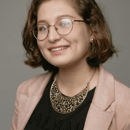It is no secret that many of us are angry.
On Barnard and Columbia’s campus, we are privileged beyond belief to be surrounded by many like-minded individuals committed to making a change in the world they live in. Barnumbia has always been a place of rigorous academic and social discourse, and many students identify as activists or with activist causes. However, this does not mean that the bubble is impervious to the weight of the world and its many problems. Post-election of Donald Trump, hate crimes have risen at an alarming rate, with a 91% increase in anti-Muslim hate crimes during the first half of the year in comparison with 2016. While xenophobia, intolerance and racism have no place on our campus, it still finds itself insidiously seeping into our social fabric. One of the most blatant examples of this is Columbia University’s College Republican’s recently invited speakers list, which includes controversial right-wing figures Tommy Robinson and Mike Cernovich. Robinson, the creator of anti-immigrant riot-group The English Defense League, spoke to students over Skype on October 10th (he is not allowed in the United States due to an extensive criminal record, which includes trying to enter the U.S. with a fake passport). Many students were shocked and upset that his islamophobic rhetoric could be shared at a place like Columbia, as well as dispirited that fellow students would resonate with his message. “My initial reaction was disappointment. The conservative presence on campus is better than the speakers that a minority of the CUCR chose to invite,” said Kris Ahn, Media Director of Columbia University Democrats. “The most recognizable names on their speaker list have histories of inciting violence and in no way contribute to productive political discussion.” Cernovich, who is invited to come to Columbia on October 30th to speak to students about “the rise of alternative media,” is a conspiracy theorist who propagated #Pizzagate, which culminated with a shooter entering the infamous D.C. pizza shop and putting people’s lives in danger.
In a recent email addressing the protests in response to Robinson, administrator Suzanne Goldberg wrote that it is “foundational” for Columbia’s teaching method to allow for a “contestation of ideas.” Many cite a need for ideological variety and diverse perspectives when defending controversial speakers, forgetting that we also have standards of tolerance and acceptance. Inviting controversial speakers does little to spark open dialogue or even conversation between two opposing sides. It is an affront and blatant attack from a small minority of students who care little about dialogue and more about seeing how many people they can anger and silence. “The most recognizable names on their speaker list have histories of inciting violence and in no way contribute to productive political discussion,” says Kris; these speakers represent a branch of beliefs based in dehumanization. Students have little to gain from hearing the perspectives of racists and conspiracy theorists, and these speakers have done nothing to merit an invitation to spew their fringe views. It’s one thing to bring a fiscal conservative whom students may disagree with on fundamental levels but wields credibility — it’s another to invite a speaker who advocates for the denial of human rights.
Further inhibiting conversation, voices of dissent represented by the mass protest of students outside the Robinson event are being silenced by our administration with threats of disciplinary action, including possible expulsion. Columbia is known for its history of student activism, and it would be a disgrace to see punitive actions against these students expressing their right to protest.
Unfolding social movements are often portrayed as extreme, flawed, and, at best, the “underdogs” in the situation by those in power. However, students will use their own power to fight for what is right. In terms of student organizations like the Columbia University Democrats, counter-programming has been a strategy utilized to steer attention away from CUCR’s speakers and actually promote productive discussion. Kris encourages students to get involved in various ways: “Students can volunteer their time to groups such as CAIR- NY (The Council on American-Islamic Relations). We can participate in protests and engage in productive conversation with our peers. We can vote in local elections and push for progressive measures, and call our representatives, on both the state and federal levels, to show legislators that people desire change.” Yes, many of us are angry that white supremacy is still a reigning ideology that has found its way on our campus, and we should be angry. But, we will continue protesting, volunteering, and letting our voices be heard to know that hate is not welcome here nor in our neighborhoods.
Petition: Don’t Discipline Students for Protesting White Supremacy


